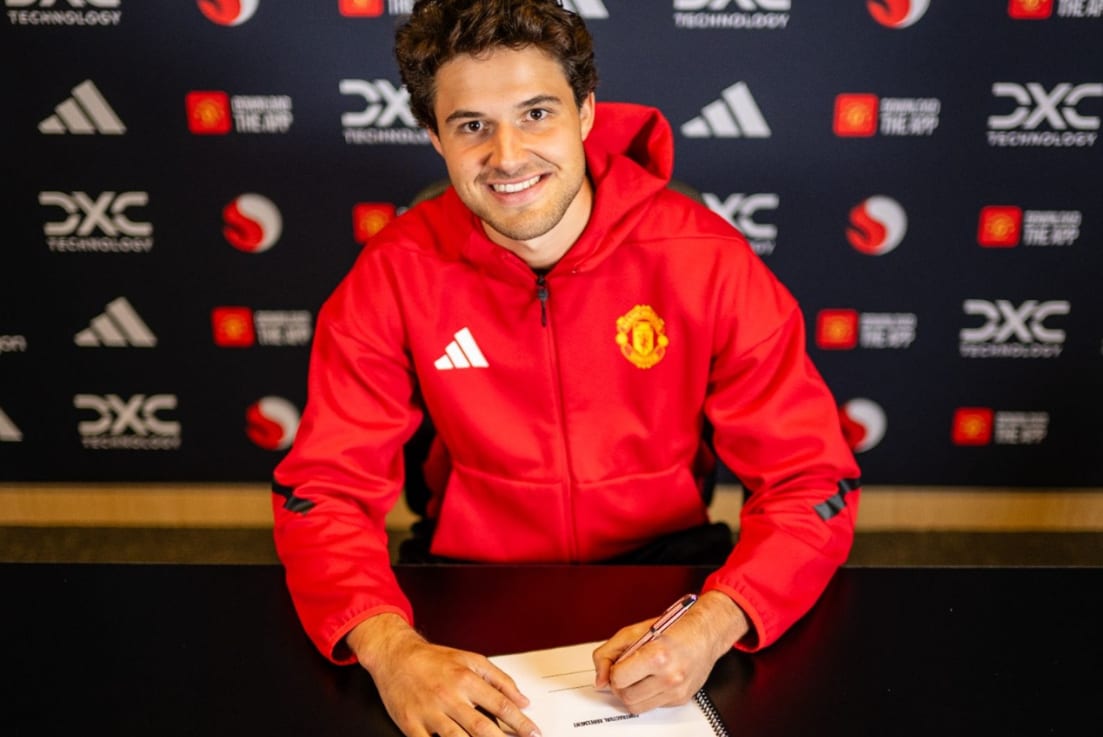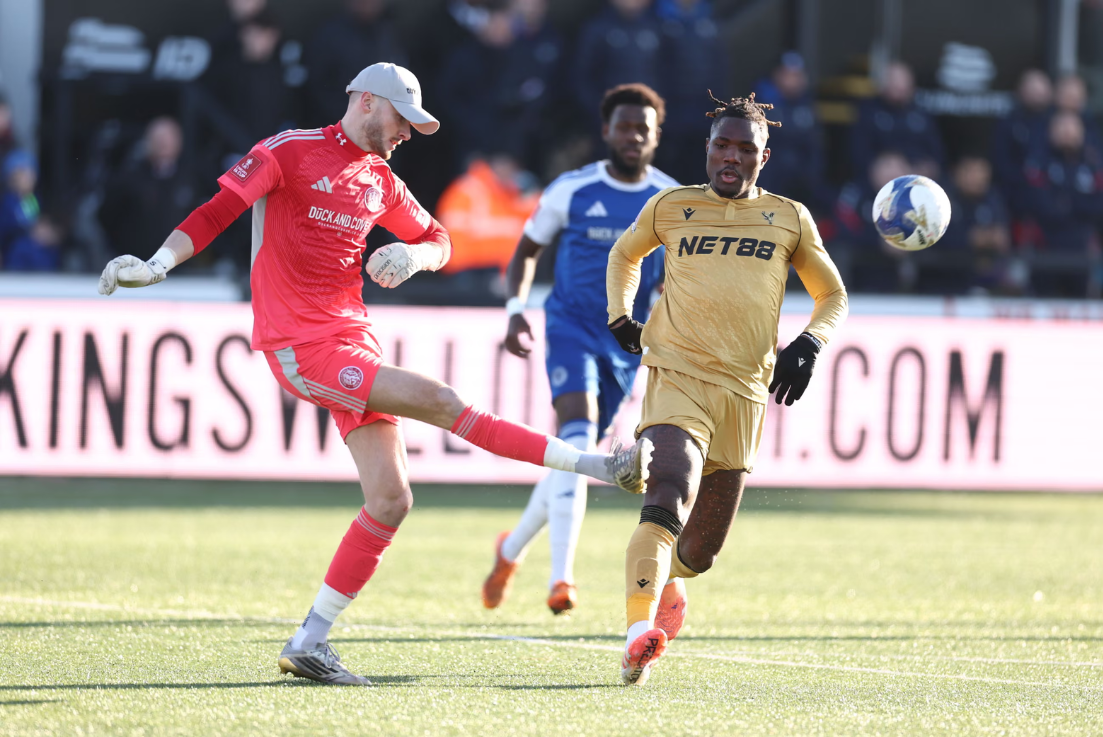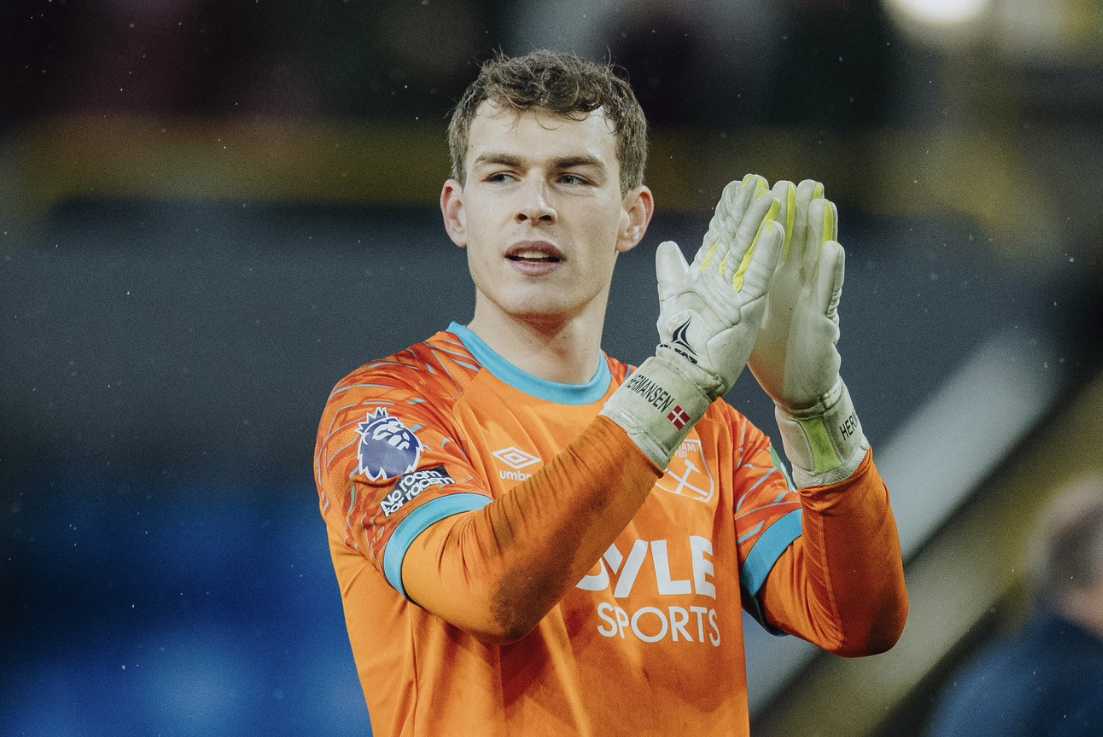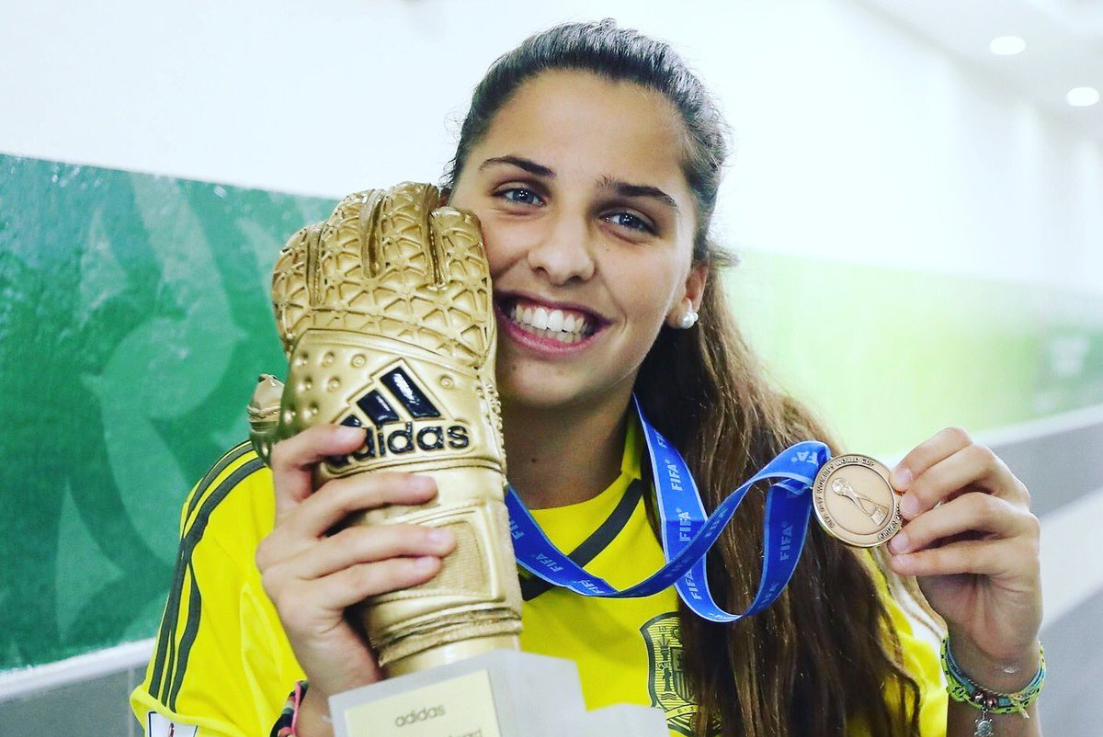Both the red and blue halves of Manchester brought in new number ones on deadline day. What do the moves reveal about changing club approaches in the north?
Manchester worships football. Its streets, parks, cafés, pubs, and offices are threaded with the same stories of triumph, mistakes, and drama that define the game. Over the years, the city has witnessed title races that grip the nation, managerial overhauls that make headlines, and transfers that shift the balance of power. Rarely, though, does a single week reshape not just a team or a club, but the entire city’s approach to the game’s most unforgiving role: the goalkeeper.
As a city, Manchester has always been obsessed with goalkeepers, and a revolving door of big names and greats have passed through its posts. From Peter Schmeichel’s snarling dominance to David de Gea’s spider-limbed heroics, from Edwin van der Sar’s calm assurance to Joe Hart’s spectacular shot-stopping, the man between the sticks has often defined the story of its two clubs.
United fans have seen Fabien Barthez’s outré flair and unpredictability, Tim Howard’s flashes of brilliance, and a conveyor belt of hopefuls, while City’s history includes David James’ eccentric charisma, Bert Trautmann’s broken neck, and even a brief spell for Arsenal legend David Seaman. Across Manchester, goalkeepers have shaped seasons, lifted trophies, and carried the weight of expectation.
In a flurry of deals that closed the summer window, City waved goodbye to Ederson, the man who redefined goalkeeping in England, while welcoming Gianluigi Donnarumma in a deal that promises a new era at the Etihad. Across town, United quietly reshaped their own plans with the signing of Senne Lammens - a move that somewhat slipped under the radar by comparison but may prove just as significant.
This wasn’t just run of the mill transfer deadline day drama. It was a hard reset for two clubs who have spent the last decade shaping the country’s conversation around goalkeepers.
Ederson’s £25m move to Fenerbahçe caught many off guard. At 31, he still looked every inch the modern goalkeeper: calm under pressure, razor-sharp in possession, and a decent shot-stopper who perfectly embodies Guardiola’s gospel of risk and reward. Yet, after eight trophy-laden seasons - six Premier League titles, two FA Cups, four League Cups, and the long-awaited Champions League in 2023 - this was as much about timing as it was about talent.
City’s dominance over the last decade wasn’t just built on De Bruyne’s artistry or Haaland’s goals; it started at the back. Ederson was Guardiola’s enabler, turning the penalty box into a playmaking hub. His lackadaisical line-breaking passes became so frequent and precise that what was once considered spectacular became expected, while opponents were forced to press high and leave dangerous gaps behind. For better or worse, depending on which side of the debate you sit, he redefined goalkeeping in England—not just inspiring, but compelling a generation of goalkeepers to sharpen their passing game.
But football moves fast, and rarely faster than at Guardiola’s City. For all their success, the club is defined by evolution. Seen through that lens, Ederson’s farewell feels less like a shock and more like the conclusion of a carefully mapped cycle a calculated pivot before complacency had the chance to set in. Over the last few seasons, questions had been raised over Ederson's shot-stopping, and City's uncharacteristic poor spell of form last season suggested that Guardiola's golden side perhaps needed a reboot across the park. All good things must come to an end.
Enter Gianluigi Donnarumma. At 26, he’s already played more than 400 senior games, won the Euros with Italy, and developed a reputation as a once-in-a-generation shot-stopper. Yet, his three-year spell at PSG was far from flawless. In Paris, his brilliance was often undercut by high-profile errors and the club’s tactical inconsistencies. In Manchester, he arrives not just to replace Ederson, but to reinvent himself.
City paid a relatively modest £26 million for Donnarumma, modest by their standards and by the fees the Premier League has recently seen for goalkeepers, which highlights the unusual nature of this deal. Even more unusual was the style of Donnarumma's exit from PSG - something he clearly wasn't expecting, judging by his farewell remarks on Instagram.
Unlike Ederson, Donnarumma is no quarterback in gloves. He’s a towering presence, a more traditional goalkeeper who thrives on reflex saves and dominance in the box. For a team that has spent years stretching the pitch vertically through Ederson’s distribution, his arrival could signal a subtle shift.
Guardiola, who has reinvented City’s midfield and forward lines countless times, now faces a new tactical challenge: can his side maintain their passing rhythm without the most gifted distributor in goalkeeping history? Or is this the beginning of a more pragmatic City, one that places defensive stability over audacious risk-taking at the back? Well, Donnarumma himself knows he may have to adapt.
‘I always try to help the team and do what the coach asks of me. I do everything; you can always improve in everything, but regarding what the coach asks of me, I try to improve,’ he said at Italy's training camp on Wednesday. 'I'm sure that with Guardiola we'll do a great job.'
City’s goalkeeping depth makes this story even more intriguing. Stefan Ortega, Ederson’s deputy, has impressed in almost every opportunity, while James Trafford, recently bought back from Burnley, represents another pathway Guardiola could pursue. In Trafford's case especially, it's probable that he'll be catapulted forward by working with a goalkeeper of Donnarumma's stature. But would he not have gained similar from Ederson?
With three top-class options and a coach who relishes competition, Donnarumma might not simply be handed the shirt. This evolution has an edge to it, there will be no guarantees, no comfort zones, only constant competition. How this will affect stability and consistency at the back remains to be seen, because in the Italian's mind, he'll be here to play, after signing permanently. That means that Trafford could find himself out of the team as quickly as he worked himself into it.
Perhaps the analysis needs simplification. Donnarumma is world class, and has proven it. How could City not bring him to the Etihad?
While City stole headlines on deadline day, United worked on two long-running negotiations, with few knowing who - if anyone - was really about to move to Old Trafford. The Red Devils secured eventually secured Senne Lammens from Royal Antwerp for around £18m; only a few days earlier, the BBC had reported that no goalkeeper business was expected at Old Trafford.
Since Sir Alex Ferguson’s retirement, United’s goalkeeping narrative has been one of extremes. David de Gea’s heroics masked systemic problems, Dean Henderson was anointed too early, and Andre Onana’s time at the club has been turbulent to say the least, marked by a litany of high-profile mistakes and intense scrutiny from all angles. Lammens represents something different: a calculated investment in a 23-year-old with enormous upside, acquired before the market inflates further.
Lammens may or may not dislodge Bayandir immediately, but his arrival signals a philosophical shift. Under Amorim and the club’s new sporting structure, United are prioritising patience over panic buys and quick fixes, building depth and competition into a position that has long been a source of instability. Lammen's capture certainly was a protracted process, with interest first reported early in the summer. Amorim seemed to want to give his current options as much of a chance as possible.
The media storm following Bayandir's performance against Arsenal on the opening wekeend meant that chance last less than ninety minutes.
For the last decade, Manchester has been the epicentre of European goalkeeping evolution. De Gea, at his peak, was a reactionary genius who kept United afloat. Ederson, meanwhile, turned passing into a goalkeeper’s primary weapon. Both clubs have shaped global conversations about what a modern goalkeeper should be, often in contrast with one another.
Last week’s transfers suggest a new chapter, and the contrasts between the two approaches could not be sharper. City’s decision to replace a sweeper-keeper with generational passing range for a more traditional shot-stopper is a gamble that could reshape Guardiola’s system, testing whether their intricate build-from-the-back style bends or breaks without Ederson’s composure and precision.
United, meanwhile, have added a young goalkeeper as cover and competition rather than rushing to displace André Onana with another big name after a turbulent couple of seasons. There was a case to be made, however, that a big name may have been what United needed to steady the ship in the short term. If Lammens does go in as number one, it remains to be seen whether he'll sink or swim under the pressure of the jersey.
The Athletic have recently reported that senior figures at Manchester United have actually been surprised that Onana has decided to leave and join Trabzonspor on loan. They expected him to stay and fight for the shirt. But in this story questions remain. Emi Martinez would have come into the club and undoubtedly taken - and likely held - the number one shirt. In Lammens they have signed a goalkeeper who doesn't necessarily seem to immediately solve the problems that United are facing - namely, that they are struggling to find a true number one.
The fees also tell a story. City’s £26 million investment in Donnarumma is almost identical to the price they paid for Ederson in 2017, a fee that feels like a bargain for a player who could become the Premier League’s dominant No.1 (or No. 99 in his case), while United’s £18 million outlay for Lammens reflects ambition tempered with long-term planning.
Both moves encapsulate their clubs’ identities: City as a relentless machine, constantly rebuilding and reinventing, and United as a team still reconstructing its foundations, prioritising sustainability over spectacle.
The immediate temptation is to crown winners and losers of the window. Donnarumma’s unveiling and Ederson’s farewell will dominate the news cycle. But goalkeeping legacies aren’t written in reactionary press releases.
If anything, this week is a reminder that Manchester’s two clubs are never static. The next chapter in Manchester’s rivalry might not be written by Haaland or Cunah, Cherki or Fernandes, but by the players who stand behind them, the ones whose mistakes and miracles shape entire seasons.
For now, all eyes are on Manchester’s goalkeepers, just as they have been for decades. This week’s moves haven’t just reshaped two squads, but reminded everyone how much the men at the back can define a season. In a city obsessed with football, this summer’s upheaval has shown once again that when it comes to keepers, Manchester always demands to be part of the conversation.









